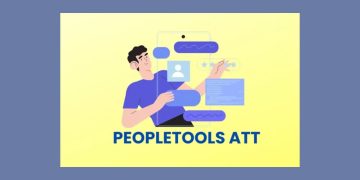According to the American School Counselor Association, school counselors make a big difference. They have an overall positive impact on student development, academic achievement, and transition into college. Schools that have counselors report better SAT and ACT scores, better discipline, and improved attendance.
Unfortunately, the number of school counselors in America remains low. On average, there is one counselor for every 408 students. This is an improvement. In many districts in the past, it wasn’t unusual to find one counselor with a caseload of more than 600 students.
Things are better today as the numbers inch closer and closer to the recommended 250 students per school counselor. However, especially in low-income neighborhoods, there is a glaring need.
The shortage has led to some teachers transitioning into counseling. They are passionate about helping young people achieve their potential, and they understand that fostering one-on-one relationships with students can lead to higher rates of success.
They can use their training and experience in education, together with their mental health training, to help students achieve higher grades. They can also help tackle mental health problems in young people.
The transition from teacher to school counselor isn’t difficult. One way to do it is to enroll in a Master of Science in Education School Counseling (MSED SC). The course covers topics like group counseling, multicultural counseling, school counseling, and management of school counseling programs.
Students learn how to diagnose and treat psychological disorders in children and adults with an emphasis on gender, race, religion, and other factors that influence childhood development.
The prospects are great for graduates. Employment for school counselors is projected to grow by 10% in the coming decade. In many school districts, the goal is to employ several counselors to support the student population not just with academics but with their personal lives as well.
If you are a teacher who is thinking about making the transition or would like to become a school counselor right away, it is important to acquaint yourself with the basics of school counseling.
This article answers the basic questions: What does a school counselor do? What is the benefit of having school counselors? What techniques do they use to help students?
What is a School Counselor, and How do They Help Students?
A school counselor is a professional who is certified to provide academic and personal guidance to students. School counselors can be found in elementary, middle, and high school.
Ideally, a school counselor should work one-on-one with students, get to know them, understand their challenges, and help them navigate the school environment. They also help students make the right decisions when it comes time to go to college.
School counselors have many roles, and these roles can change depending on who their students are and what particular challenges they face. However, some roles are universal:
Academic counseling
Successful students need to plan and set goals, and the school counselor helps them get their priorities straight based on their strengths and their life goals.
This isn’t to say that the counselor helps students figure out their whole lives; rather, they help them pragmatically plan the next stages.
A counselor can work with a student to help them develop their study skills or become better time managers. They can help them learn how to prioritize and also stay away from peers who may lead them astray.
The counselor monitors progress, and if problems arise, the counselor helps the student get back on track.
Personal counseling
This is also called social counseling, and it involves addressing concerns in the student’s life that may not necessarily be academic.
It may deal with issues in the home, peer pressure, bullying, stress and anxiety, loneliness, or any other problem the student may be facing.
School counselors are careful to handle these problems because they often get in the way of academic achievement.
Where they feel they cannot help, the counselor will take the extra step of putting a student in touch with more experienced mental health professionals.
Post-secondary career guidance
As students approach the end of high school, they need to make important college decisions. The school counselor steps in to give advice and guidance on college choices.
In many low-income neighborhoods, the school counselor will have explored scholarships and financial aid opportunities for students before meeting to talk about colleges.
Many students do not make it to college, and they are not forgotten. The counselor discusses what paths they would like to pursue after high school based on their skills and interests.
Personal crisis intervention
The teenage years are a turbulent period, and many young people find themselves in a crisis of one sort or another. The counselor must step in and provide whatever interventions are needed.
One of the most common crises that students of this age face is pregnancy. If the situation isn’t handled carefully, it can negatively impact the rest of a young girl’s life.
The counselor talks to the student and their parents about available options regarding the pregnancy/baby and also about their studies.
Boys may find themselves under pressure from their peers to engage in criminal acts or partake in illicit substances. The school counselor is on hand to help figure out a way to get out of this difficult situation.
School crisis intervention
Incidents of violence have become common in American schools, and they leave students with lasting emotional scars. School counselors have proved an invaluable resource when these incidents occur.
They step in immediately to provide counseling to every student, and they monitor to ensure that they have the requisite coping skills.
If some students aren’t recovering at a satisfactory pace, the school counselor refers them to a psychiatrist or psychologist for further psychotherapy.
Evaluation
A school counselor evaluates the students under his care to ensure that they are meeting all the milestones that have been set out for them. They write detailed reports that go into the student files.
Evaluations highlight students who need assistance, and it is the job of the counselor to provide whatever help is needed to help the student academically, socially, and psychologically.
Mediation
Situations arise in school that need mediation, and the counselor is often called upon to help the two sides come to an understanding.
A student may, for example, feel that a teacher has been unfair, or two students might have an altercation. The counselor can mediate the issue and help restore peace.
Disciplinarian
In many schools, the counselor helps enforce discipline among the students. When a student is in trouble, the counselor steps in to help determine whether they have any underlying problems.
What are the Benefits of School Counselors?
School counselors have become an integral part of the school system. Not only do they help students achieve better educational and life outcomes, but they also play a pivotal role for teachers and parents.
School counselors provide vital student support
School counselors help students see the relationship between their performance now and their lives in the future. They motivate them to work hard and help them explore different career paths.
A school counselor takes the time to understand each child’s particular circumstances so that they can provide the right type of assistance.
The result, as has been attested by numerous studies, is that students do better academically and tend to make better life choices.
Counselors can catch problems early
This is possibly one of the biggest advantages of having a counselor on school grounds. Their interactions with students can help catch problem behavior before it escalates.
Sometimes just looking at the student’s results is enough to tell a counselor that there is a problem that needs to be addressed.
Change in behavior can also be telling – a student may suddenly start getting into fights. Marked absenteeism can also be an indicator of a problem at home or within the school.
Teachers are often very busy and may not catch these problems, but a school counselor can.
Counselors provide support to parents and guardians
School counselors are a great resource for parents of problematic children. They facilitate meetings where both the parent and the student can communicate, and they also provide education and resources to parents to help them cope.
School counselors also let parents know what other services are available to students, including nurses, psychiatrists, psychologists, and doctors.
If the counselor identifies a child with special needs, they discuss the issue with the parents and decide on the best way to help the child.
Sometimes they identify an especially bright child who needs specialized instruction. They meet with the parents of the child to discuss options like special schools where the child can better use their brilliance and talent.
They catch mental health problems early
Mental health problems often start in the early teenage years, and in many cases it is the school counselor who diagnoses them. The earlier these problems are diagnosed, the better for the student and all around him.
The counselor can refer the student to a mental health professional for more specialized help.
Counselors encourage open conversations about issues
Teenagers aren’t always ready to discuss their problems, but if they feel safe with a counselor, they can open up about issues that they may not necessarily talk about with their parents or teachers.
It allows for early interventions, and more serious problems can be avoided down the road.
They help parents and students connect
Counselors talk to parents about how they can better connect with their children. They also get the children to open up and talk about their experiences.
They can then bring them together and encourage them to have open and honest conversations.
Types of School Counselors
As you contemplate your change of career from teacher to school counselor, it is important to know the different types of counselors that are found in American schools. It will help you decide where you want to specialize.
Elementary school counselors
These counselors work with students in elementary schools. They specialize in providing support to young children.
A big part of their job involves diagnosing learning disabilities and working with the appropriate authorities to ensure that those who are diagnosed have access to the right resources.
They work closely with parents to monitor child development and keep a keen eye on developmental markers.
These counselors ensure that children develop the right social skills and classroom behavior. They are also tasked with notifying authorities if a child is experiencing physical or emotional abuse at home.
Middle school counselors
These work with students between the sixth and eighth grades – at a time when they are transitioning into their teenage years.
This can be a turbulent time for many. They may experience problems with peer pressure, experimentation with addictive substances, or a crisis of self-identity. They may also show a significant drop in academic performance or start exhibiting signs of depression and anxiety.
The middle school elementary counselor must monitor his students for all these signs and provide guidance where it is needed. They have the necessary experience to encourage young teens to open up.
They also help children with course selection and help them prepare for the additional study load they will encounter in the higher classes.
High school counselors
A high school counselor works with students from ninth to twelfth grade. They explore all the issues that affect children of this age.
Their job isn’t particularly easy, but if the counselors before them did a good job, it can make things a lot easier for the high school counselor. The children know that they can trust him, and he will catch problems before they become serious.
Apart from providing emotional and psychological guidance, this counselor is also tasked with helping students with academic planning.
They discuss college choices and even what courses the student ought to pursue based on their strengths and interests. They also talk with parents about college tuition fees, letting them know about scholarships and other sources of funding.
College counselors
They are also called career counselors, and they work in colleges and universities. This is a time of life when students are alone for the first time, looking to explore and carve a niche for themselves. It can be difficult because of peer pressure, identity issues, and other pressures.
The counselor’s job is to make sure that they adjust well to college life. He provides advice and guidance on how they can avoid common pitfalls.
These counselors also advise on career choices and can be instrumental in getting young people successfully settled into their careers.
Special education counselors
These specialize in students with special needs and different types of disabilities. Together with the teaching staff, parents, and other professionals, they ensure that these students have the necessary resources.
It is their job to develop Individualized Education Programs for each student and monitor to see whether or not they achieve the milestones the counselor has set out for them.
If students need special accommodations like ramps or modified bathrooms, the counselor coordinates with school authorities to ensure they are made available.
What Techniques do School Counselors Use?
There are several techniques available to school counselors, and it is up to them to assess their students to determine which one will be most appropriate.
Directive technique
This type of technique aims to teach the student to solve his problems. It is sometimes referred to as counselor-based counseling because the counselor does most of the work.
The assumption behind it is that children are still pliable, and if they learn how to solve their problems early in life, it is a habit that will serve them as they go through their careers, bring up families, and build strong social bonds.
Non-directive counseling
In this type of counseling, the student does most of the work. It is useful in teasing out deep-seated problems that require the student to talk about themselves.
The students talks about their feelings, anxieties, and whatever else they worry about, and the counselor helps them analyze and explore the reasons behind their fears.
The idea is to show the student that there isn’t much to be scared or worried about. If they can understand why they feel the way they feel, it helps drive the fear away. In a way, this type of counseling helps them confront their fears.
These aren’t the only school counseling techniques in use. You will learn many more in your MSED SC.
Conclusion
If you feel that you may be more helpful to young people by providing them with advice and guidance, it may be time to transition your career from teacher to school counselor.
You need a master’s degree, and if you enroll in the right institution, you can complete it in two or three years. There are many job opportunities for school counselors all over America, and the only thing that will be left is for you to choose what type of school counselor you want to be.

























